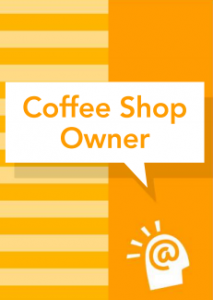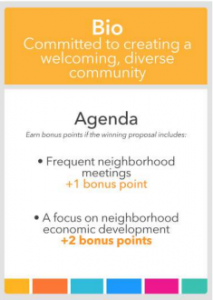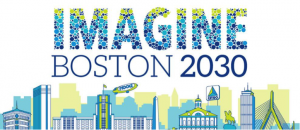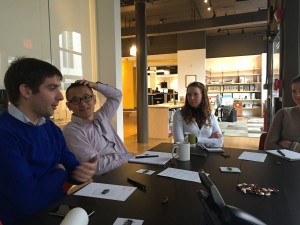@Stake: A Series of Field Notes in Game Development
Friday, February 5, 2016
By: Becky Michelson
A minister, a journalist, and a senior citizen walk into a community meeting. This isn’t a joke. We’re wondering how people with different agendas in the community come together to advance new ideas, especially in planning processes. @Stake is a game created by the Engagement Lab that addresses just this situation. Playing@Stake facilitates imagined conversations among “neighborhood” voices such as these to address issues that affect a shared community. Game mechanics such as role-play, competition, and collaboration encourage creative ideas, empathy, and learning about local issues through a playful approach, framed by the “safe” space of a game with rules. Earlier this fall, the Engagement Lab received funding from the Knight Foundation to develop a mobile version of the @Stake game. A print-and-play version of the game with facilitation guide and a character deck is available here: http://elab.emerson.edu/games/@stake/


A Sample Role Card from the @Stake Civic Deck
Let the Playtesting Begin!
Prior to the mobile version development which kicks off in mid-January 2016, we are playtesting with potential stakeholders to better understand the potential audiences and applications of the game. The first of these playtests happened on December 9th with the architecture and planning design firm Utile. Since Utile is consulting on the City of Boston’s comprehensive plan, the Imagine Boston 2030 initiative, we adapted the game to address questions pertaining to their work on community engagement in the planning process. The game, which unfolds over three rounds, was driven by questions primarily aimed at increasing inclusivity in an engagement process:
Round 1: How can we engage youth more fully in the Imagine Boston 2030 process?
Round 2: How can we make sure the seniors have opportunities to participate in the process of civic planning?
Round 3: How do we reduce racial and economic disparities in the the community engagement process for Imagine Boston 2030?


Imagine Boston 2030: Milestones. Source: http://imagine.boston.gov/
Playtest Insights
As the rounds progressed, the players more boldly stepped into their roles and wagered points to promote their viewpoints and synthesize ideas. Players enjoyed playing the “Decider” to practice decision-making and tease out the nuances of player’s proposed plans. In terms of seeing the value of the game, the players felt that there were good ideas that emerged during gameplay and that it was a great brainstorming exercise to consider out-of-the box approaches. By far, the primary take-away from the group was the games usefulness in getting individuals to think outside of their own positions and consider other points of view with more empathy. They felt the game would be useful as a warm-up at a public planning meeting, setting the stage for work that can often be contentious. One new situation the Utile planners suggested using @Stake for is at interdepartmental working groups that meet regularly for long-term projects. We’ll use this advice to map out more use values with civic associations and similar groups that fit the suggested description.

Urban Planner, Will Cohen, proposes ideas from the perspective of a museum docent role card, proclaiming that, “Art is the ultimate equalizer” and arguing for utilizing museums as fresh, apt spaces for more public planning engagement.
Next Steps
Our next scheduled playtests are with the teams running the urban tactical event Better Block by Somerville Design and the innovative City Hall to Go truck. If you would like to be one of our stakeholder testers, please reach out to Becky at [email protected]. Otherwise, stay tuned for more game development updates!
Originally published at engagementgamelab.org on December 15, 2015.